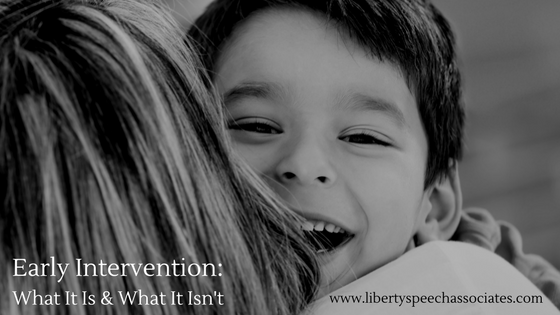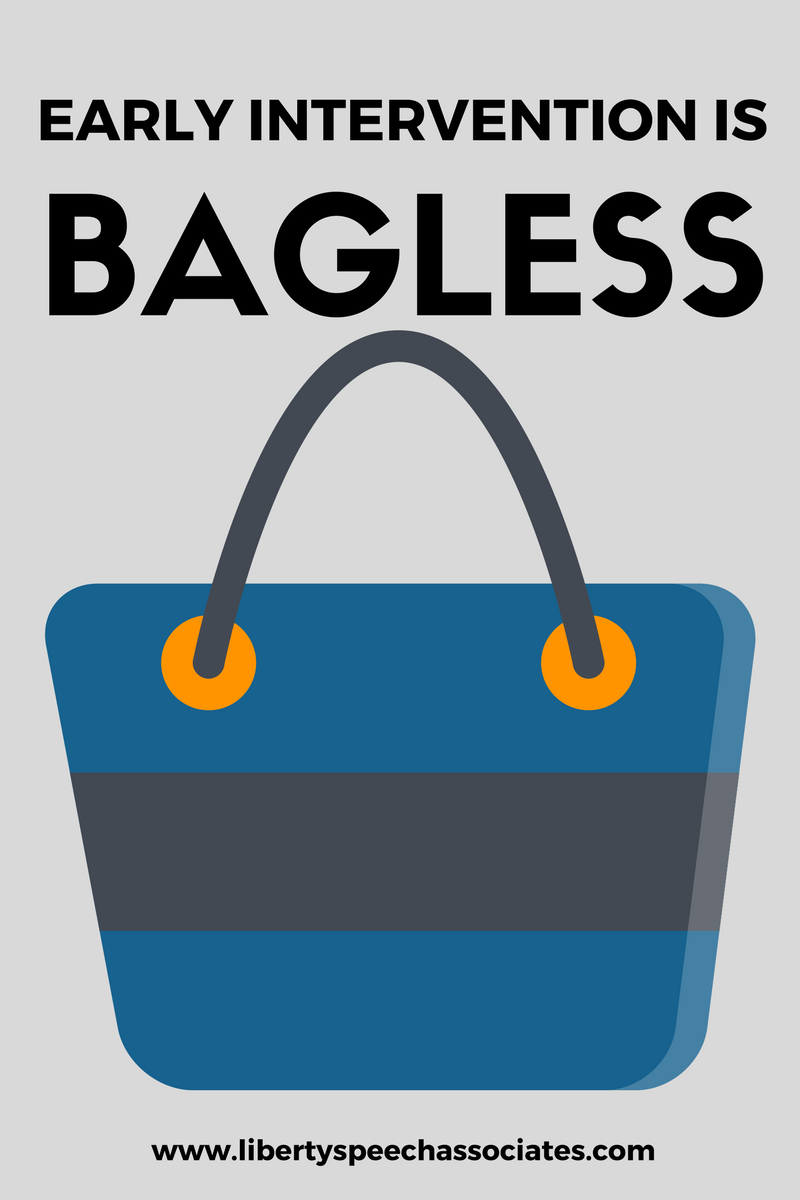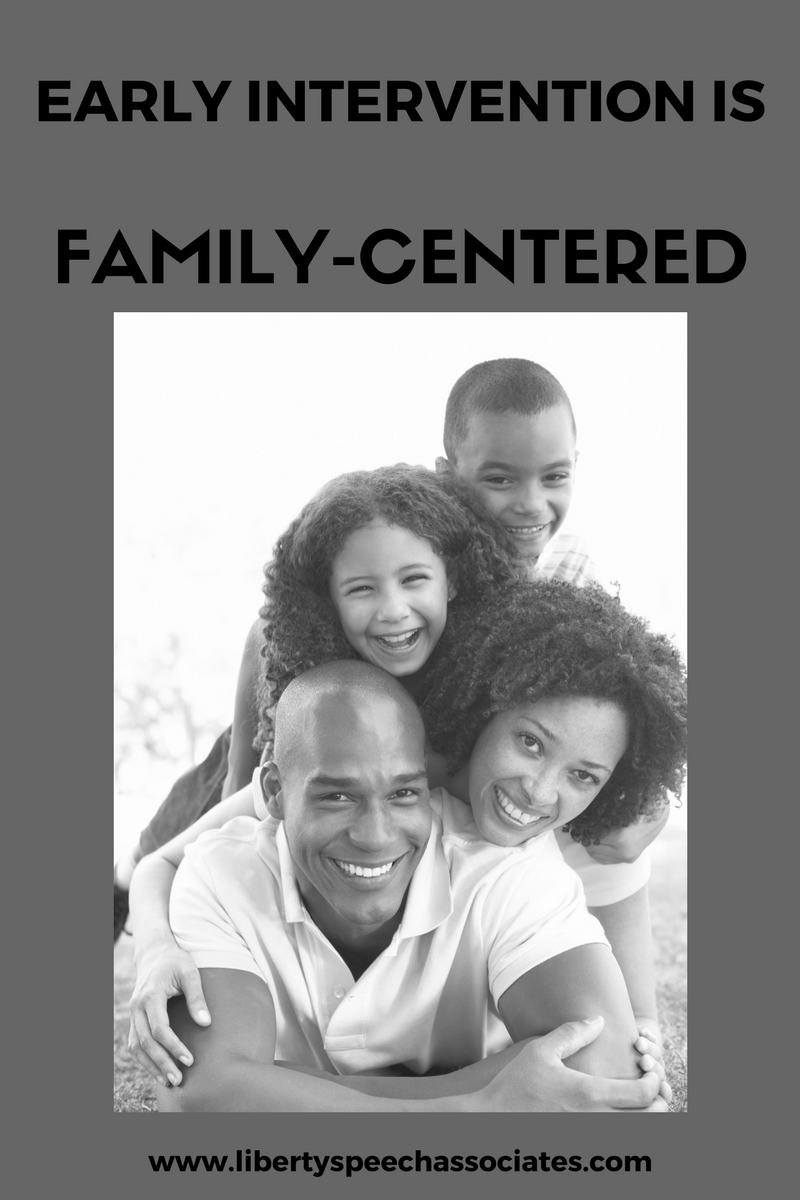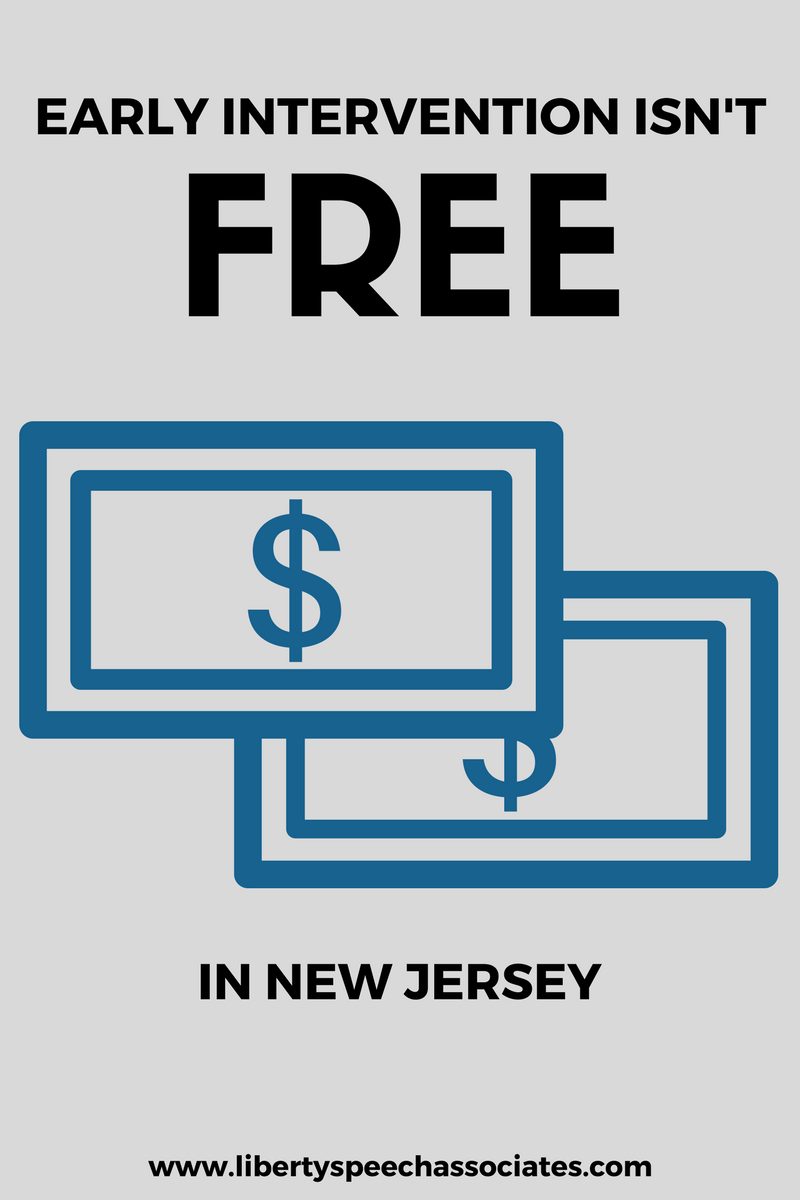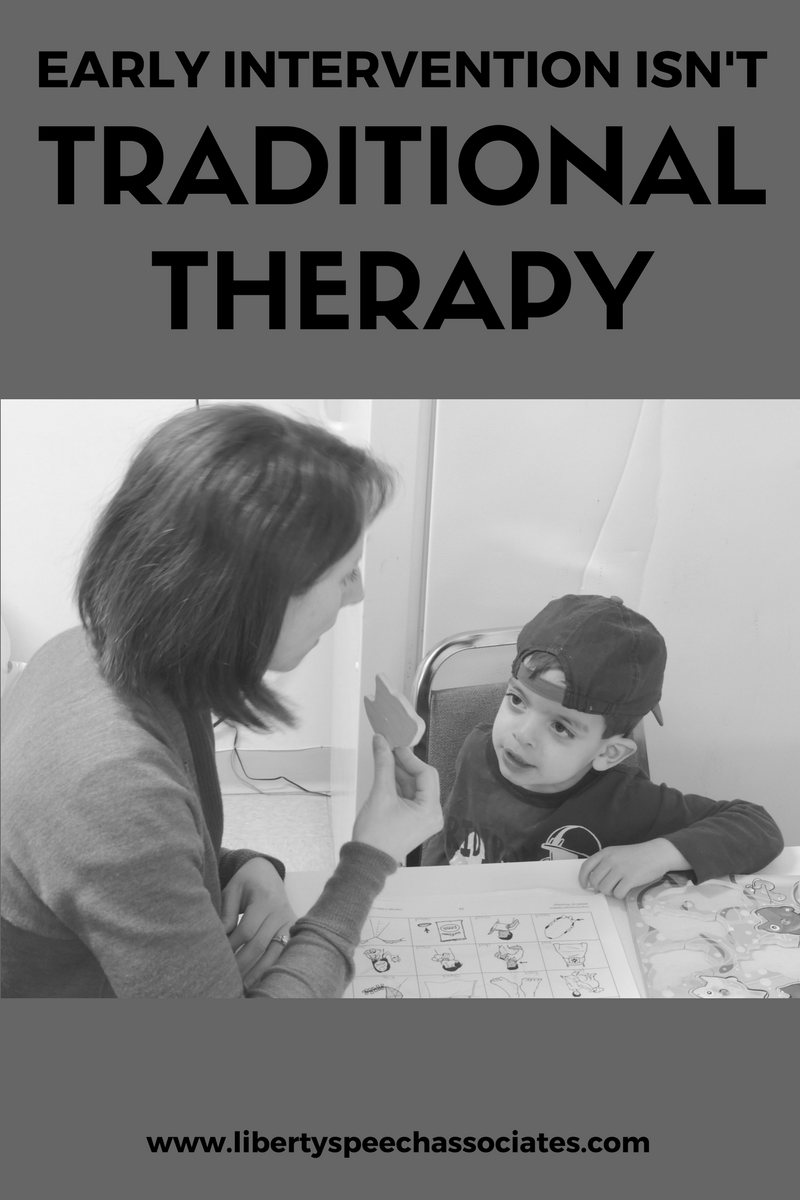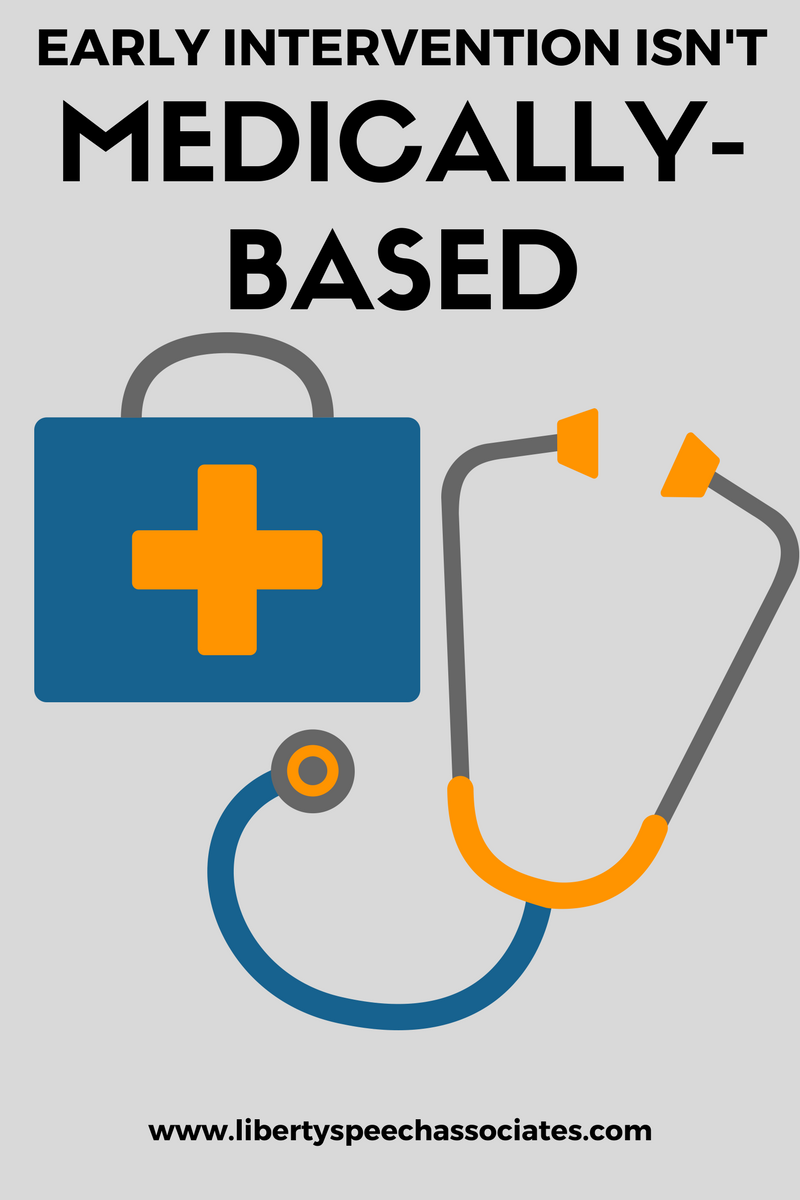Early Intervention (EI) is a great program for young children and their families to receive related services. Services might include speech therapy, physical therapy and occupational therapy. In NJ, this program covers children from birth to age 3. Although it is a great program, there are many misunderstandings about what EI is and isn’t. My hope is that through this blog post families seeking EI services will understand what the experience entails (and what it doesn’t).
What Early Intervention is:
Bagless
If your child is receiving EI services, the therapist(s) should typically not be bringing in any of their own toys or special gadgets. As EI service providers, we’re supposed to show you how to use what you have in your environment to encourage various developmental skills.
Family-Centered
EI is about you as a family. There should be ongoing discussion between you and your therapist(s). It’s our goal to assist your child and your family with day-to-day routine activities (e.g., food shopping, story time at the library). Your family’s needs and goals should dictate the goals and types of services that are provided. Because EI is centered around the family, family members/caregivers should be active participants in the therapy process. In fact, family members should be essentially driving and providing the services.
A Learning Experience
The learning experience is for you as the parent as much as it is for your child. You’ll learn new techniques and activities (or how to manipulate old activities) to facilitate your child’s overall development.
What Early Intervention isn’t:
Free
It is a common misconception that EI is free. Unfortunately, in NJ, this is not the case. The evaluations, as well as all meetings, are at no cost to the family. However, the actually services, such as speech therapy, are at a cost. The cost is on a sliding scale based on your family’s income. Your EI therapists are not privy to any of your income or billing information.
Traditional Therapy
As mentioned above, EI is based on a family-centered approach. If you are looking for traditional therapy, where your child works 1:1 with a particular service provider based on goals that the service provider deems fit, EI is probably not the best choice for you.
Medically-Based
Many times doctors recommend that a child receive a certain number of hours of therapy (e.g., 2 hours per week of speech therapy) based on his/her medical condition or disability. However, because EI is not a medically-based or clinical program, these recommendations don’t hold much weight. As a family-centered model, you, as the parent/caregiver, are driving the therapy. EI service providers are supposed to spend the least amount of time in the home necessary to show you different techniques that you can implement on a day-to-day basis.
A Babysitting Service
This may seem obvious, but EI is not a babysitting service. Your service provider is there to help you to help your child. You should be actively involved in the therapy sessions, so that your child receives the most benefit. If your service provider tells you to leave the room or you choose to leave the room because you have a lot to do, you are not receiving EI services in the manner they were intended and your child’s progress may be affected.
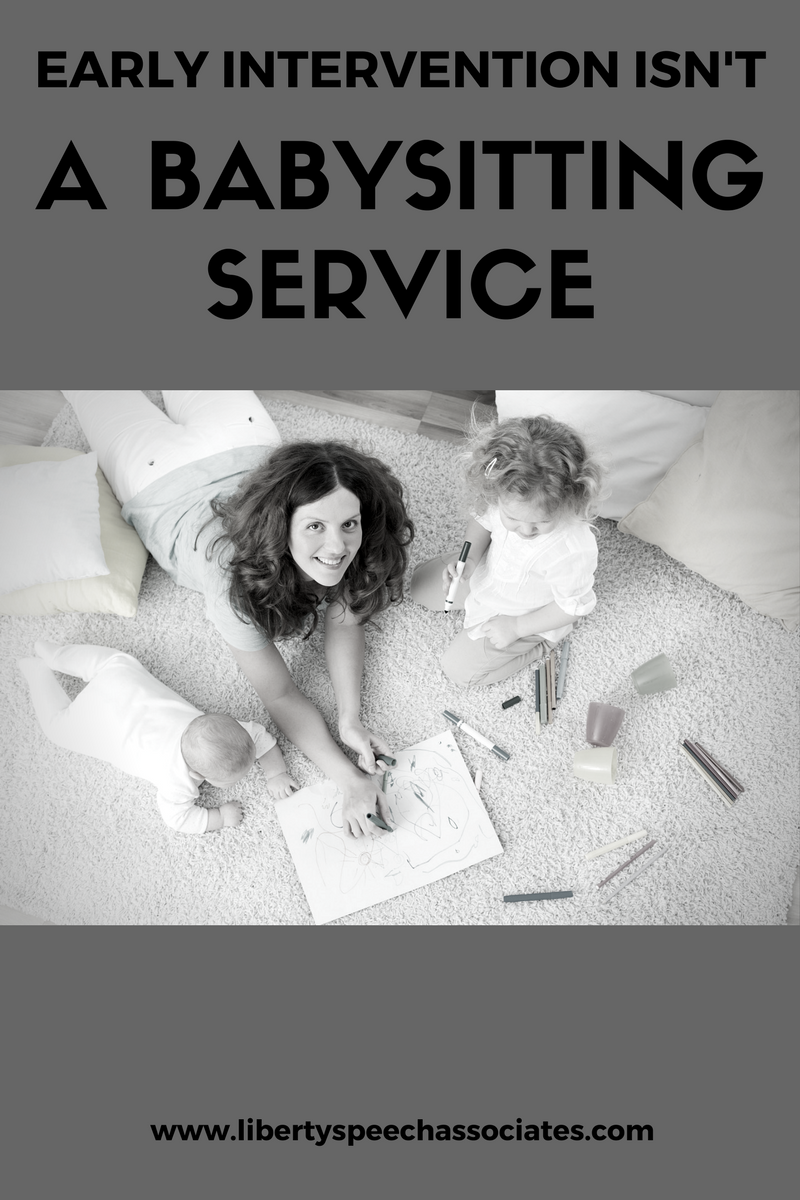
Please leave a comment with your experiences with the NJ Early Intervention System. If you live in another state, I would also love to hear what EI is like where you are.

